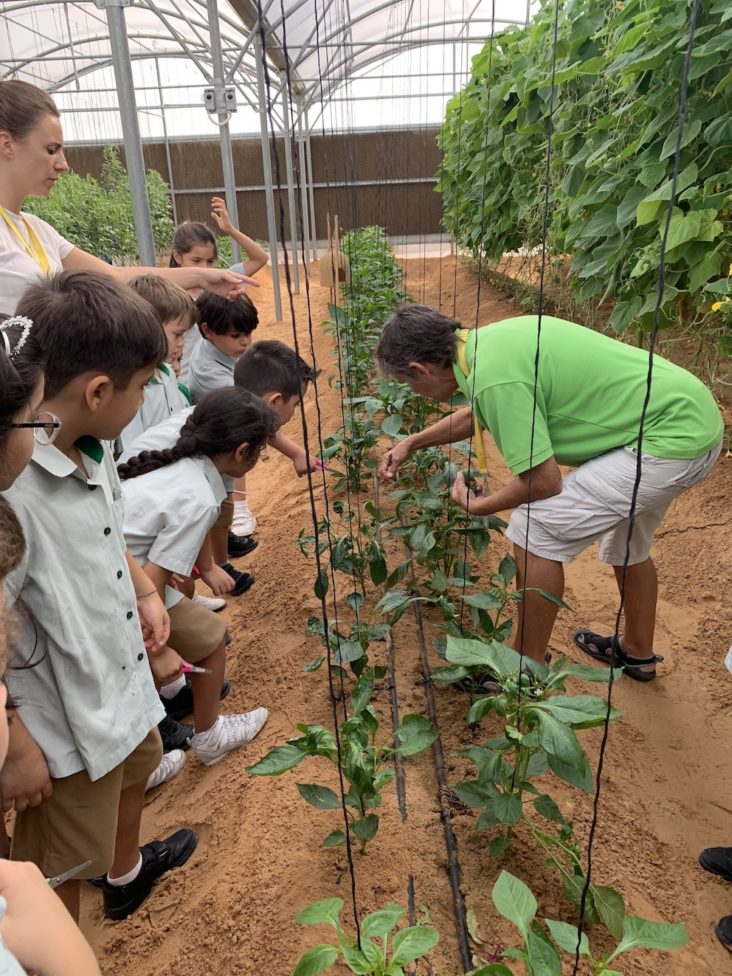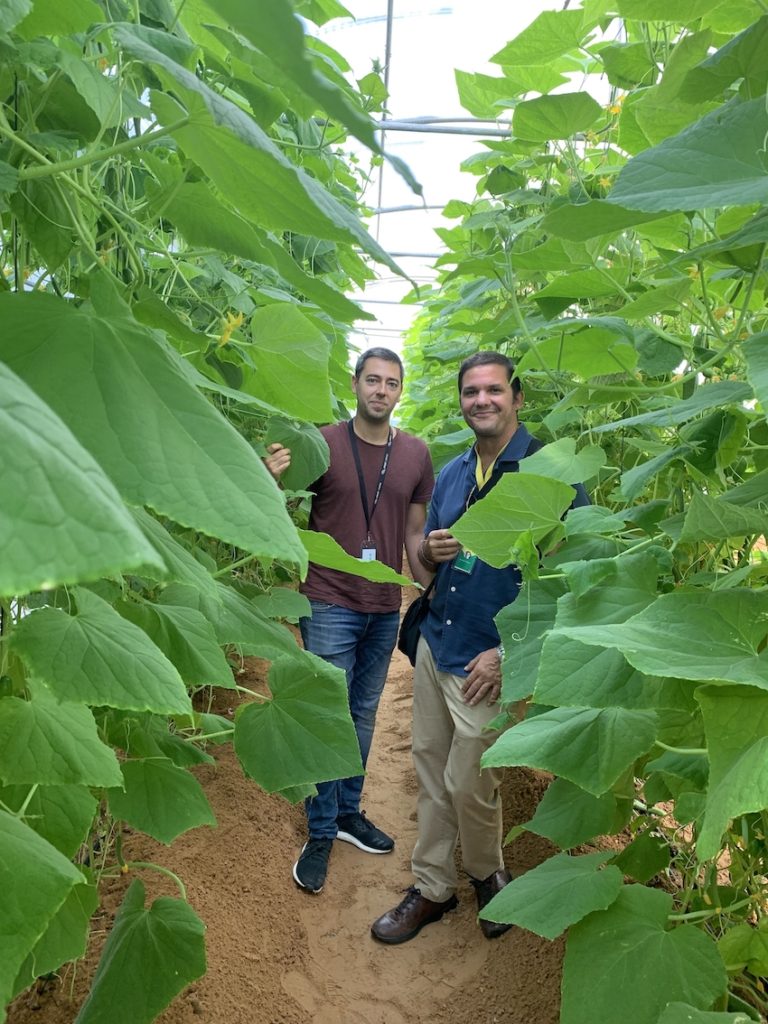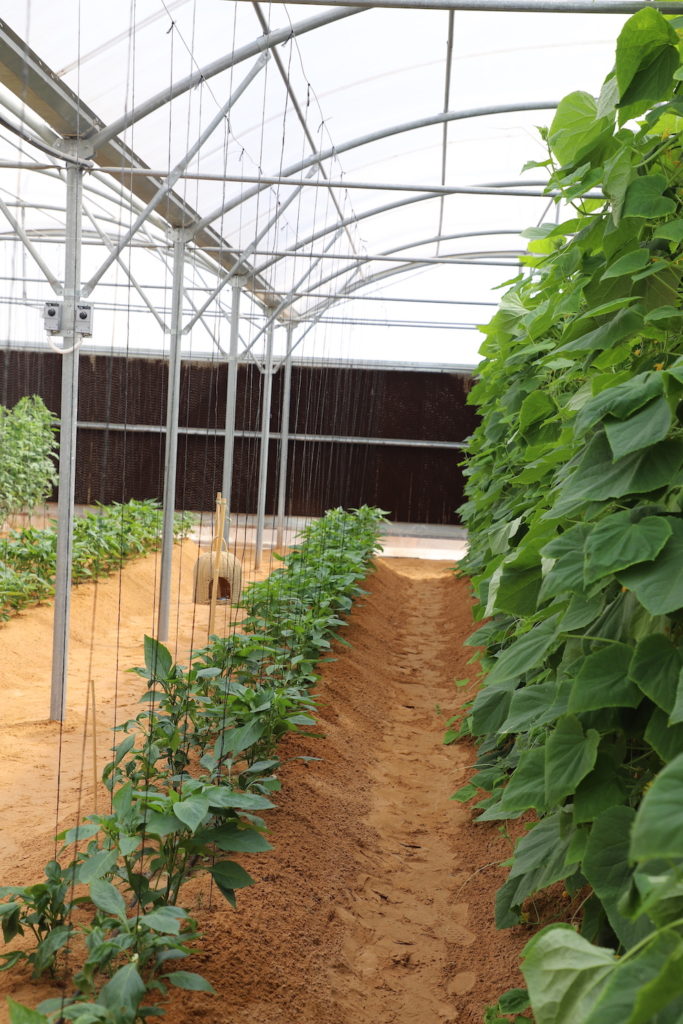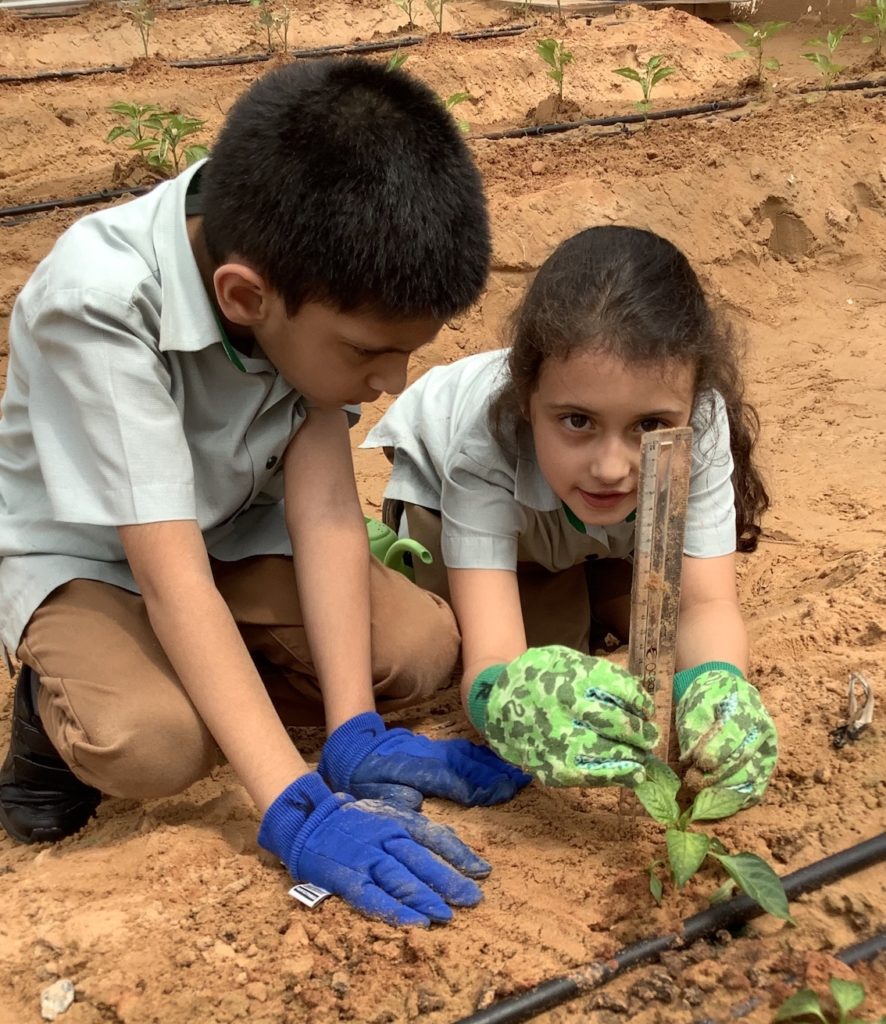The Arbor School Partners With Emirates Bio Farm

The Arbor School, an ecological school in Al Furjan, has partnered with Emirates Bio Farm, the UAE’s largest private organic farm, to give Arbor students a deeper understanding of how food is grown organically and to develop their self-sufficiency and understanding of ‘farm to fork’ concept.
The school, which delivers the National Curriculum for England to students from FS1 to Year 7, was inspired by an ecologist and is taught by a community of passionate educators. Farmers from Emirates Bio Farm are now working with Arbor’s team of gardeners and ecologists to maximise food production in a purpose-built, energy-efficient high-yield, organic greenhouse which sits adjacent to the school’s three larger biodomes.
The partnership is a further commitment by the school to blend academic rigour with teaching students a deep understanding of the world and their place within it.
The greenhouse is now home to the school’s first crop of organic fruit and vegetables, which have been planted by the children under the supervision of the experts from Emirates Bio Farm. Over half a tonne of produce will have been harvested and shared with the community – well before the Arbor Winter Harvest Fayre on December 10.
Further variety will also be on offer at the Fayre, as fresh seeds from the Emirates Bio Farm have been planted at in the school’s outdoor learning garden, another green space providing local organic produce grown by our students.
Brett Girven, Principal at the Arbor School, said: “Partnerships like this are beneficial to us as a school but predominantly to our students. We share the same values as the team at Emirates Bio Farm and we are learning so much from them when it comes to growing food that is natural, healthy and environmentally friendly. It’s all about reinforcing the principles of conscious, healthy living and environmental awareness to our students.
“The concept here is to go beyond a standard science lesson, allow the children to get their hands into the soil, really get back to nature and understand how their food is produced. It also allows us to connect with our community once we produce the food, placing it into our cafeteria, and then beyond that into composting. We want to ensure we are creating a perma-culture model, which is sustainable, and which doesn’t pump chemicals back into the system.”
Older students have also had the opportunity to measure light intensity, planting frequencies and harvest rates, monitor the growth periods and pull as much scientific data from the food production systems as possible.
“At Arbor, we teach children to question their impact on the planet and to assume their responsibility as stewards of the future in a profoundly interconnected world,” added Mr. Girven.
“Environmental justice means ensuring we have enough for all, forever, and the children are incredibly excited at the prospect of showing their parents and our local community what they have grown sustainably, at our first Harvest Fayre. We also hope that other schools will be inspired by this idea and take on similar concepts. So far, I believe we’re the only school delivering a scheme of this kind and on this scale. It’s incredibly exciting and rewarding.”
After the Winter Harvest Fayre, the school plans to host a Winter Picnic towards the end of the year and a third event to utilise the growing cycle, leading up to the summer. Ahead of each event, the students will re-start the process, re-planting, re-sowing and re-harvesting, choosing new produce and learning about crop rotation, companion planting and growing cycles.






